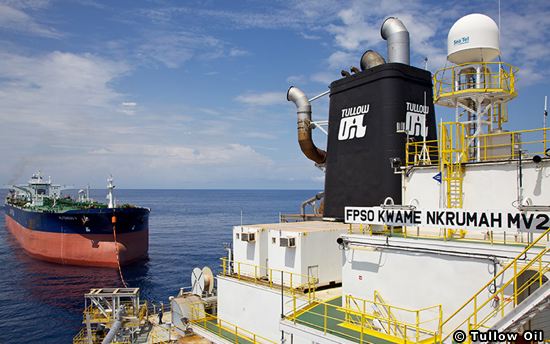A Research Consultant for IMANI Centre for Policy and Education, Mr. Dennis Asare, has intimated that the manifesto promises on the Energy sector is not feasible. Stating that, the 1 million barrels per day project by the NDC is overly ambitious.
The two leading political parties in Ghana, New Patriotic Party (NPP) and National Democratic Congress (NDC) in their manifestos presented to Ghana have made promises concerning the Energy sector, which Mr. Dennis Asare believes has some challenges.
Speaking on Joy FM, Mr. Asare stated that the coronavirus pandemic has created a lot of uncertainties for the future. Though globally, there is an estimated number of four years recovery, Ghana might not be able to achieve close to 10 percent of the ambitious promises of the two major political parties for the energy sector in Ghana.
Brewing the challenges in the manifesto promises on the Energy sector, Mr. Asare noted that the NDC in its ‘people’s manifesto’ have promised that when voted into power, will accelerate oil production to a million barrels per day (1bpd). According to the research consultant, Aker Energy Ghana which has submitted a plan of development, Springfield Oil and AGM Petroleum Ghana Limited which are still engaging in exploration, are the oil and gas developments currently going on in Ghana.
According to him, the three fields mentioned are the fields that are expected to produce oil and gas for the next 5 years. He stated that these fields are still in the base stages, that is the exploratory, appraisal and plan of development, “so, it is hard to predict that, should the NDC come to power in 2020 or win the election in 2020 and comes to government in 2021, it is hard to see Ghana produce 1 million bopd in the next four years; it is difficult,” he posited.
Elaborating the challenges, Mr. Asare of IMANI Ghana opined that one of elements that drives the investors is the price of oil. According to him, if oil prices are low, it should be expected that some developments will be delayed.
He further stressed that the oil and gas sector is facing a decarbonization challenge. According to a report by Wood McKenzie, the value of the oil and gas sector in Africa has declined by USD 200 billion, with a decline of about USD 14 billion within March and October 2020, in investment in Africa which has propelled Foreign Direct Investment to decline the oil drive, which would have accelerated the growth in production by 2021, quizzing that, “where are we going to drive that investment from? With current oil prices, how do you intend to drive that production and from which fields are you going to do that? He lamented.”

The NPP in its manifesto noted that it will enforce local content policies in the upstream and downstream while the NDC, want to aggressively promote and review local content policies. According to Mr. Asare, there is a disconnection between our local content policies and the industrialization drive of the country.
He further stressed that, for an acceleration of local content, there is a need to have an industrialization policy that sets up the infrastructure, provide the framework that allows oil and gas companies which are in the country, and need fabrication, materials or welding services, to have these resources available and already in existence, which will prevent sourcing from outside.
“What we are seeing in Ghana is that, the areas that are high employing areas and high value areas, those are the areas that we lack capacity like, fabrication, construction, exploration and well drilling. These are areas that Ghana does not have much capacity.
“So, the areas that we have capacity has been transportation, health and safety areas. But, these areas too do not have much value and the number of people they can employ is very low. So, these are problems that we also need to look at.”
He further stressed that, if the NDC want women to venture into energy businesses, the party has to make sure that the financial services are ready to engage in such as ventures.
“The question is not about how many people or how aggressive you want to do it, but, these fundamental areas, until you resolve some of these fundamental challenges, you will set up a policy, the oil and gas companies may be seeking the services internally, but your internal capacity is not well structured to provide such services.”




















